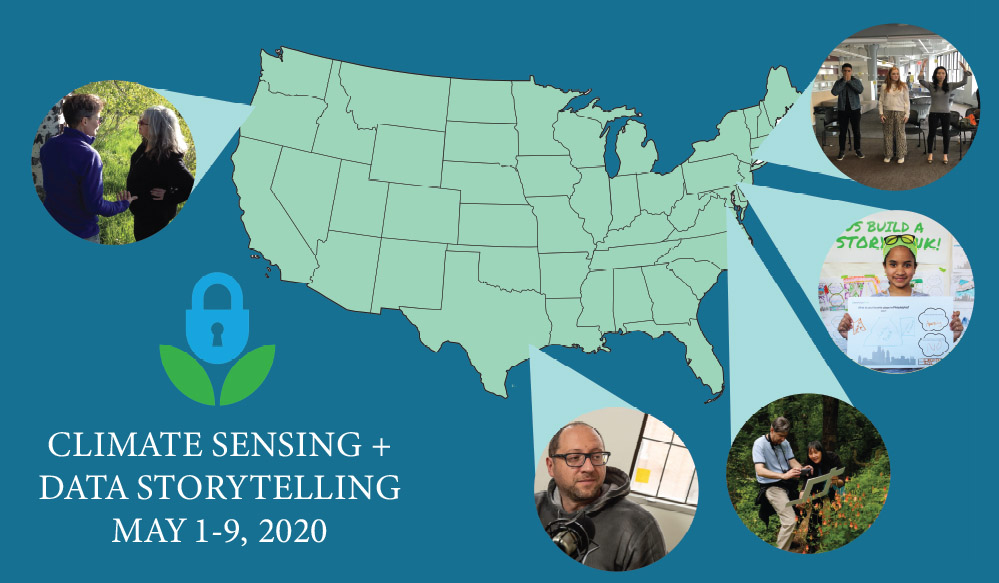Climate Sensing and Data Storytelling Convening

Hosted by the Penn Program in Environmental Humanities, Climate Sensing and Data Storytelling is an all-digital series of engagements that showcase publicly engaged environmental research projects which marry environmental art and science. With support in part from the National Geographic Foundation, this digital platform features presentations by researchers, artists, and data storytellers across the nation, part of PPEH’s multi-year explorations of how data, paired with story, can spur action on climate.
One stream, featuring both asynchronous and real-time engagements, focuses on environmental research projects designed to promote public engagement and to develop tools to generate conversations about environmental and data literacy and justice: art walks; workshops for speculative futures; dance; tours; and public writing, oral history, and community science projects. Pre-recorded talks will be available beginning May 1, and live engagements, including a question and answer session with keynote speaker Amitav Ghosh, begin May 7.
The platform also supports an online art exhibition, Making Sense, featuring the work of PPEH Artist in Residence, Amy Balkin, among other invited artists.
Public audiences are invited to explore both talks and engagement and to contribute a personal Climate Story, using storytelling prompts and tools inspired by past PPEH Writer-in-Residence Eric Holthaus’s insight that “If words make worlds, then we urgently need to tell a new story about the climate crisis.” A culminating engagement in the University of Pennsylvania’s “Year of Data,” we invite additions of your Climate Story as vital, embodied climate data to the project’s public data storybank.
A fourth and final stream highlights a newer public engagement collaboration, born of our present global health crisis. covid X climate invites thinkers—scholars (of all career stages), artists, activists, citizens of the world— to share their lived experience and expertise to collectively draw connections between COVID-19 and the set of convergent crises usually lumped under the heading of “climate change.”
